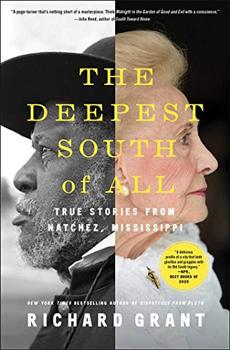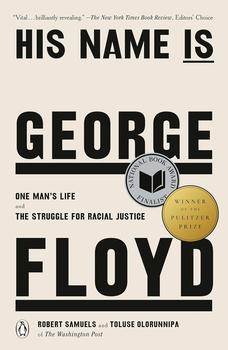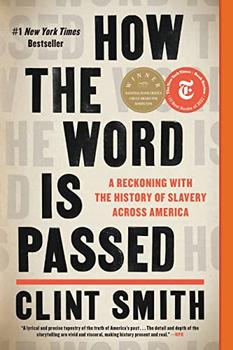Summary | Excerpt | Reviews | Beyond the book | Read-Alikes | Genres & Themes | Author Bio

True Stories from Natchez, Mississippi
by Richard GrantBestselling travel writer Richard Grant offers an entertaining and profound look at a city like no other.
Natchez, Mississippi, once had more millionaires per capita than anywhere else in America, and its wealth was built on slavery and cotton. Today it has the greatest concentration of antebellum mansions in the South, and a culture full of unexpected contradictions. Prominent white families dress up in hoopskirts and Confederate uniforms for ritual celebrations of the Old South, yet Natchez is also progressive enough to elect a gay black man for mayor with 91% of the vote.
Much as John Berendt did for Savannah in Midnight in the Garden of Good and Evil and the hit podcast S-Town did for Woodstock, Alabama, so Richard Grant does for Natchez in The Deepest South of All. With humor and insight, he depicts a strange, eccentric town with an unforgettable cast of characters. There's Buzz Harper, a six-foot-five gay antique dealer famous for swanning around in a mink coat with a uniformed manservant and a very short German bodybuilder. There's Ginger Hyland, "The Lioness," who owns 500 antique eyewash cups and decorates 168 Christmas trees with her jewelry collection. And there's Nellie Jackson, a Cadillac-driving brothel madam who became an FBI informant about the KKK before being burned alive by one of her customers. Interwoven through these stories is the more somber and largely forgotten account of Abd al Rahman Ibrahima, a West African prince who was enslaved in Natchez and became a cause célèbre in the 1820s, eventually gaining his freedom and returning to Africa.
Part history and part travelogue, The Deepest South of All offers a gripping portrait of a complex American place, as it struggles to break free from the past and confront the legacy of slavery.
Grant weaves together Natchez's past and present, as well as lighter and heavier subject matter, rather seamlessly. His candid humor brings levity, while his attention to history provides important reflections on the area's past. Whether it be the intrigue of bizarre stories such as the "Goat Castle Murders" or the secrecy of the clandestine Black paramilitary group known as the Deacons of Defense, his writing will inspire in readers a desire to further explore the city of Natchez. In a pandemic world where travel has been greatly thwarted, Grant takes us to an astonishing place where "oddballs get free range" that is also steeped in the kinds of history lessons all Americans should know...continued
Full Review
 (573 words)
(573 words)
(Reviewed by Jane McCormack).
 Richard Grant's The Deepest South of All examines the aftermath of slavery in the Deep South through the lens of Natchez, Mississippi. One clear inference that can be made from his Natchezian narratives is that the past must be confronted before it can lay dormant in its grave. Unfortunately, history is often written with its authors only addressing that which they personally deem important. Grant raises this issue in his exploration of Natchez when he broaches the glaring oversight of the Parchman Ordeal.
Richard Grant's The Deepest South of All examines the aftermath of slavery in the Deep South through the lens of Natchez, Mississippi. One clear inference that can be made from his Natchezian narratives is that the past must be confronted before it can lay dormant in its grave. Unfortunately, history is often written with its authors only addressing that which they personally deem important. Grant raises this issue in his exploration of Natchez when he broaches the glaring oversight of the Parchman Ordeal.
The Parchman Ordeal occurred in Natchez in October, 1965, when nearly 150 primarily Black protestors were arrested and taken to the notorious Mississippi State Penitentiary at Parchman, where they were stripped, searched, taunted ...

If you liked The Deepest South of All, try these:

by Robert Samuels, Toluse Olorunnipa
Published 2024
A landmark biography by two prizewinning Washington Post reporters that reveals how systemic racism shaped George Floyd's life and legacy - from his family's roots in the tobacco fields of North Carolina, to ongoing inequality in housing, education, health care, criminal justice, and policing - telling the singular story of how one man's tragic ...

by Clint Smith
Published 2022
The Atlantic staff writer and poet Clint Smith's revealing, contemporary portrait of America as a slave owning nation.